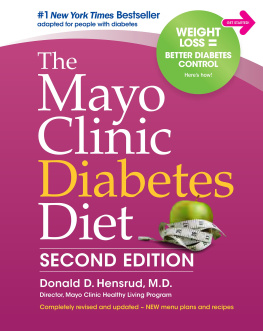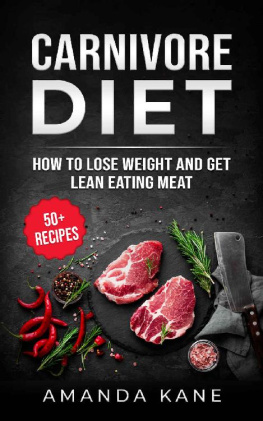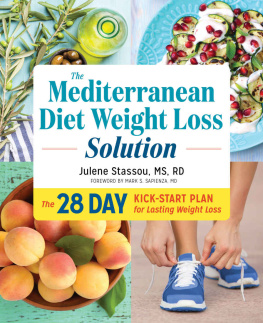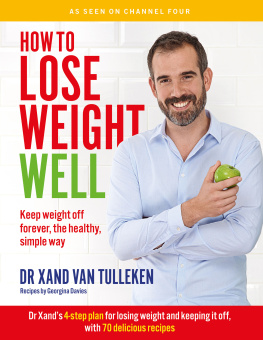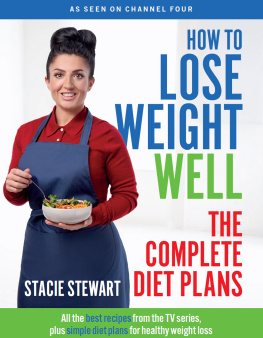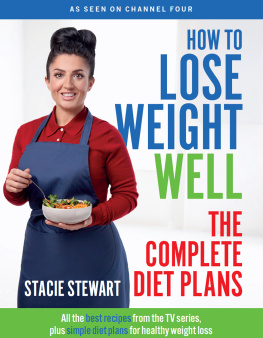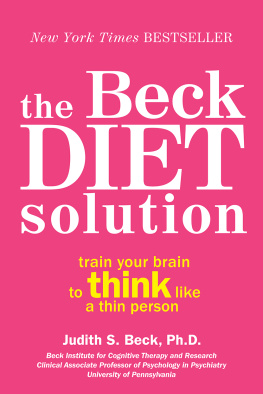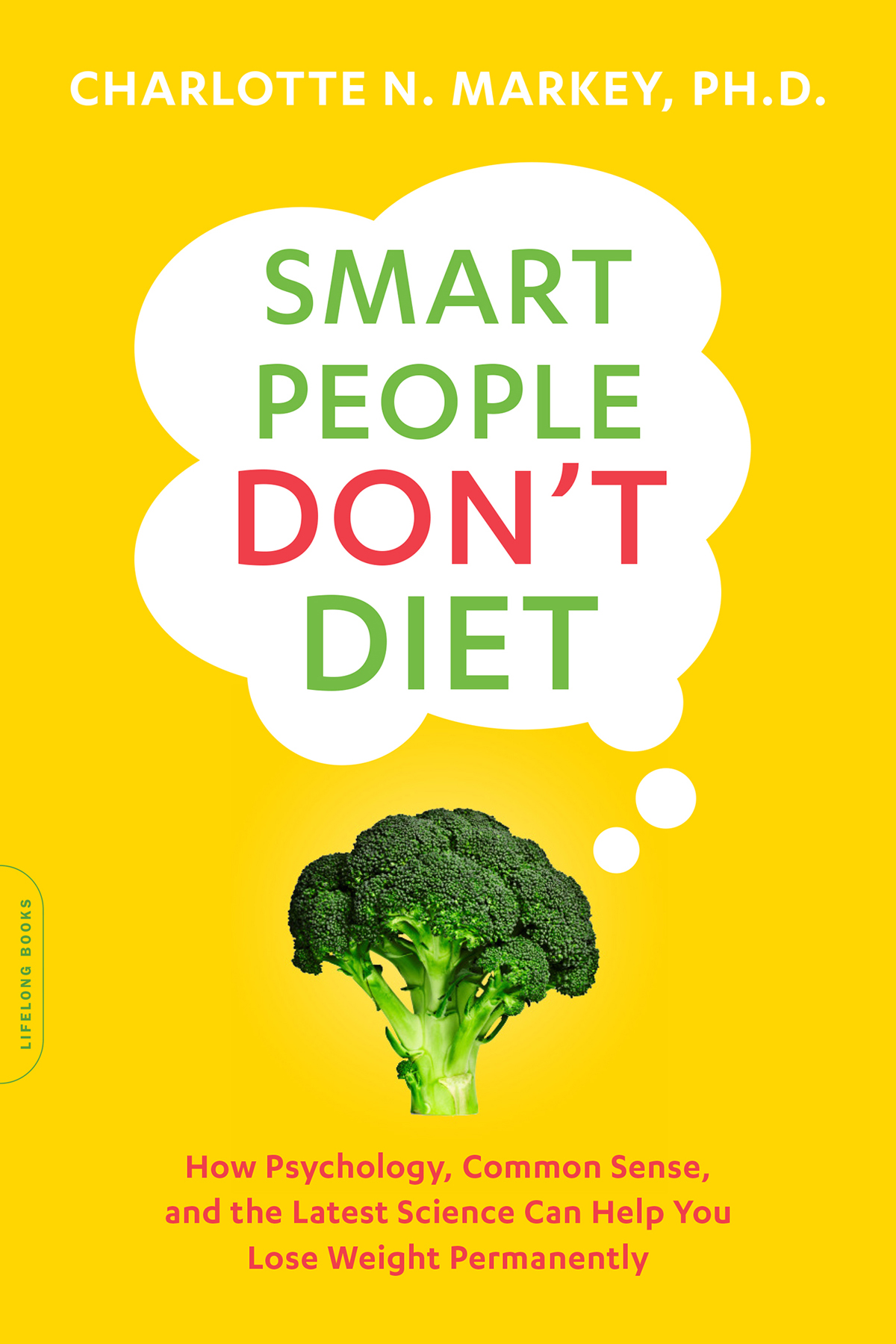Praise for Smart People Dont Diet
Since all of the data indicate that diets dont work, Dr. Markey proposes a reasonable path to good health in easy, doable steps. Dr. Markey gives insights into why we eat the foods we eat, and how we can change our inclinations so that we pick healthier choices. She suggests ways to change habits, and there are many easy-to-read tables throughout that give alternative food options. And most importantly, Dr. Markey writes about how positive feelings about our body shape and characteristics can spur us to strive for health.
Joseph Dixon , PhD, Department of Nutritional Sciences, Rutgers University
Copyright 2014 by Charlotte Markey
Cartoons on pages 1, 19, 37, 63, 83, 113, 137, 161, 183, and 203 copyright Randy Glasbergen
All rights reserved. No part of this publication may be reproduced, stored in a retrieval system, or transmitted, in any form or by any means, electronic, mechanical, photocopying, recording, or otherwise, without the prior written permission of the publisher. Printed in the United States of America. For information, address Da Capo Press, 44 Farnsworth Street, 3rd Floor, Boston, MA 02210.
Designed by Brent Wilcox
Set in 11.75 point Adobe Garamond Pro by the Perseus Books Group
Library of Congress Cataloging-in-Publication Data
Markey, Charlotte N., author.
Smart people dont diet : how psychology, common sense, and the latest science can help you lose weight permanently / by Charlotte N. Markey, PhD. First Da Capo Press edition.
pages cm
Includes bibliographical references and index.
ISBN 978-0-7382-1771-0 (paperback) ISBN 978-0-7382-1772-7 (e-book) 1. Weight loss. 2. Weight lossPsychological aspects. 3. Self-care, Health. I. Title.
RM222.2.M3577 2014
613.25dc23
2014031432
Published by Da Capo Press
A Member of the Perseus Books Group
www.dacapopress.com
Note: The information in this book is true and complete to the best of our knowledge. This book is intended only as an informative guide for those wishing to know more about health issues. In no way is this book intended to replace, countermand, or conflict with the advice given to you by your own physician. The ultimate decision concerning care should be made between you and your doctor. We strongly recommend you follow his or her advice. Information in this book is general and is offered with no guarantees on the part of the author or Da Capo Press. The author and publisher disclaim all liability in connection with the use of this book. The names and identifying details of some individuals in this book have been changed.
Da Capo Press books are available at special discounts for bulk purchases in the US by corporations, institutions, and other organizations. For more information, please contact the Special Markets Department at the Perseus Books Group, 2300 Chestnut Street, Suite 200, Philadelphia, PA 19103, or call (800) 810-4145, ext. 5000, or e-mail .
10 9 8 7 6 5 4 3 2 1
E2-20210526-PDJ-PC-AMZ
For Charlie and Grace
The best reasons I can think of
to keep eating my vegetables
Note: A portion of the proceeds from sales of this book will be donated to The Food Trust www.TheFoodTrust.org to fund programs that facilitate education about healthy eating for children.
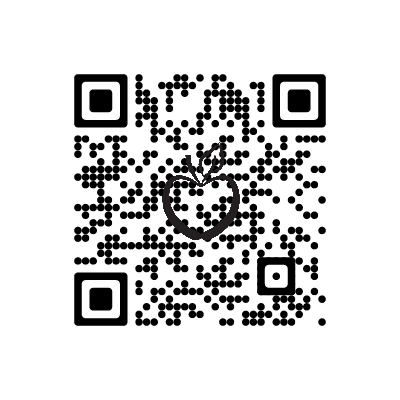
Download the companion app designed to help you follow the advice in this book. Scan the QR code or go to www.SmartenFit.com .
Contents
I Wasnt Always Smart
Ive been obsessed with food for as long as I can remember. As a young girl, I was convinced I would one day be a ballerina. Of course, most little girls want to be ballerinas, but I really was going to be a prima ballerina. A decade in the dance world inevitably resulted in a lot of scrutiny about what I ate and what I weighed. By the age of twelve, I knew quite a bit about dieting, but that was expected as a girl auditioning to be a part of San Francisco Ballet. During the audition, I was told that I would not be admitted into the company. In fact, I was told that I would not ever make it as a dancer because I simply did not have a dancers body. At the time, I was crushed; today, this memory serves only to confuse me. I dont remember what I weighed back then, but I know I was nowhere near overweight. Unfortunately, my preadolescent self just assumed I was fat, and I reluctantly left ballet for more typical teenage pursuits: sports, cheerleading, boys.
Watching my weight wasnt reinforced only on the dance floor but also at home, where someone was always on a diet. I learned how to count calories before I hit puberty. And, I learned a lesson that the dance world had first introduced: watching what you ate was a normal part of life. Adolescent insecurities ramped up my interest in dieting, and it wasnt long before my obsession with food led to a dark chapter of my life. By the middle of high school, my weight was hovering below a hundred pounds and I had already achieved my adult height of five feet five inches. Fortunately, there were people who noticed when I lost weight. A high school math teacher (an intimidating man who also happened to be the schools football coach) sat me down, expressed uncharacteristic empathy, shared his own struggles with his weight, and offered sound nutritional advice. My swim coach encouraged me to be proud of my strong legs, and a school counselor never failed to just ask me how I was doing when he saw me. My family worried, my friends provided support and encouragement, and doctors assured everyone that there was no medical explanation for my weight loss.
There was no dramatic turning point or epiphany that led me to eat more, take better care of myself, and return to a healthy weight. I became older and more mature, and I suppose I gradually came to terms with the fact that I was not being smart, I was potentially compromising my health to be thin. My story is not one of a magical moment of redemption; its a story of a typical, insecure teenage girl who gradually learned what healthy eating entailed with some help from a nutritionist, good social support, and the pursuit of a degree in psychology.
When I began my undergraduate education at Santa Clara University, I did not plan to major in psychology. But, after taking a few classes, I was hooked. I loved that a scientific, methodical approach was available to help me understand my world better. I began to do research during my senior year of college, andnot surprising, I supposemy initial focus was on childrens eating attitudes. I applied to graduate school because I loved psychology and wanted to continue doing this research. By that time, I had moved beyond trying to merely understand myself to wanting to understand all the children, adolescents, and adults who struggle with poor body image and engage in maladaptive eating behaviors. I was lucky to receive incredible training at the Healthy Families Project (University of California, Riverside), the Childrens Eating Lab (Pennsylvania State University), and the Longevity Project (University of California, Riverside) while I completed my PhD in health and developmental psychology.
In 2002, I joined the faculty at Rutgers University and developed a course called the Psychology of Eating. Many years later, I still love teaching this class, and my research at Rutgers focuses on issues ranging from romantic partners influences on eating behaviors to parents concerns about their childrens obesity risk. For some, thinking about food, doing research about food, and teaching about food (never mind the need to eat food!) for this many years would be unappetizing, but Ive never tired of the subject and dont expect that I will any time soon.




